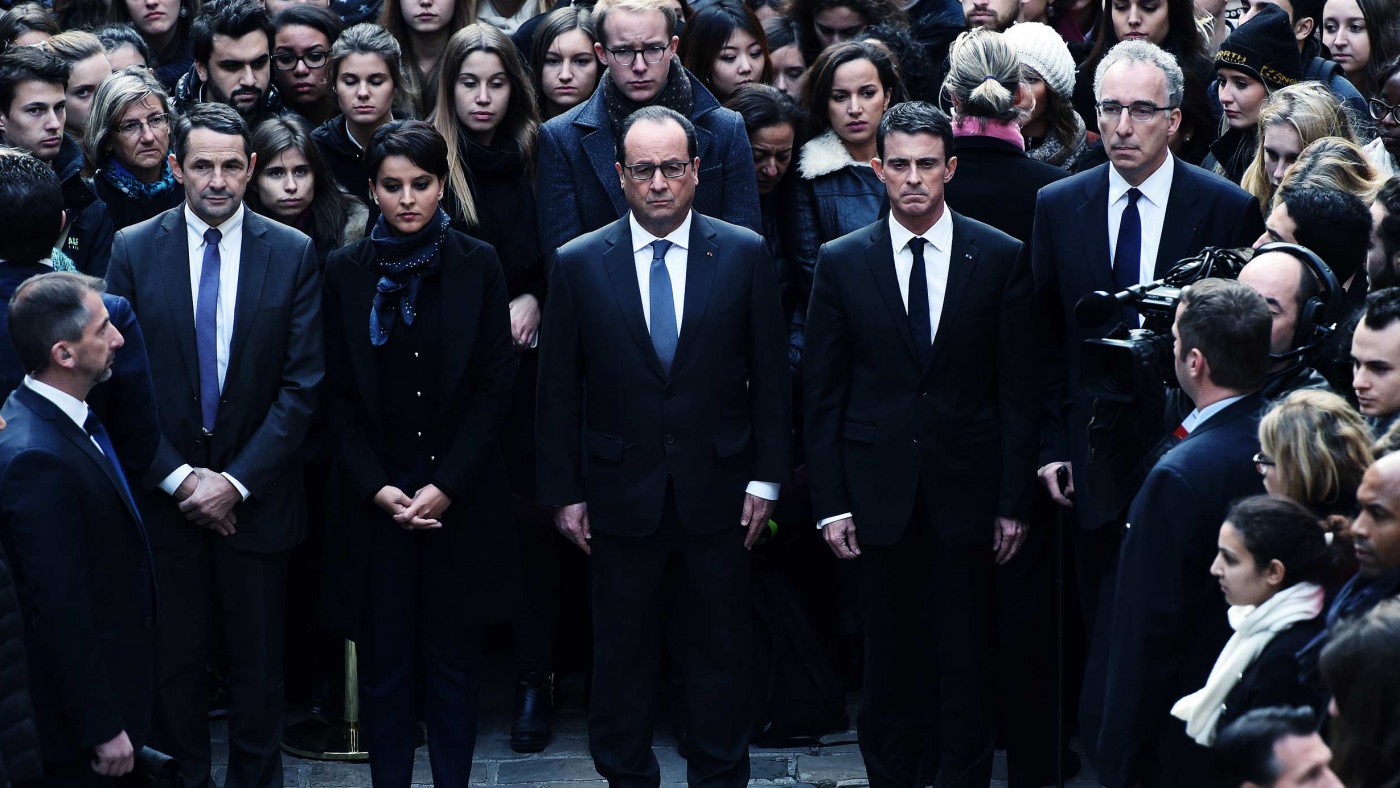There can be no doubt as to the robustness of the response of the French government to the terrorist attacks of last month. A contact who works with François Hollande in the Elysée Palace says that the atmosphere there is one of “great calm” and that, for all the horror of what has happened, the President displays a remarkable serenity.
This was no better exhibited than in the courtyard of the Sorbonne when Hollande, surrounded by his minsters, by academics and students, observed a minute’s silence in memory of the victims. No speech, a few hands shaken, a display of dignity, and then back to work. All of this from a man who has been consistently written off as weak and ineffective.
Hollande’s response to the attacks has been one of grim determination. No sooner had the attacks taken place than he used his Presidential powers to declare a state of emergency and temporarily to close down France’s borders. 10,000 soldiers were immediately placed on France’s streets.
Three days later he brought both houses of parliament together in Versailles, declaring that France had been subject to an “act of war” and that France’s response to its attackers would be “pitiless”. Air strikes on Syria were ordered and France’s mightiest ship, the aircraft carrier Charles de Gaulle, headed towards the eastern Mediterranean. This week he will continue to forge an alliance against what he sees as a common enemy.
The measures he has announced have been dramatic. Most striking of all was Hollande’s call for a revision of the French constitution. Now adopted, this allows for the state of emergency to be extended to three months. Radical imans are to be expelled from the country, mosques suspected of preaching religious hatred are to be closed, and individuals engaging in anti-French activities are to be deprived of their French citizenship.
Also announced are plans to increase the number of police by 5000 in the next two years and to establish a new “garde nationale” drawn from army reservists. Hollande has reversed plans for cuts in military personnel in the years before 2019.
Hollande’s European colleagues have similarly been taken by surprise. In declaring that the enemy is not only France’s enemy but also the enemy of Europe, he cleverly invoked article 42.7 of the Treaty of Lisbon demanding that France’s European partners come to her aid. France’s obligations under the EU’s pact of stability have been put to one side in favour of what Hollande called a “pact of security”.
Whether these measures will be successful in preventing any future terrorist attacks is of course a question that we cannot answer. One can only hope so. But Hollande is undoubtedly pursuing a high risk strategy. The mood of political unity evident after the Charlie Hebdo murders earlier this year has not resurfaced. Marine Le Pen, riding high in the polls, has attributed the attacks to the failure of the French government to deal with the migrant crisis. Former President Nicolas Sarkozy has called for tougher measures and blamed Hollande for previous inaction. To his left, critics denounce the failure of French policy in the Middle East. France’s significant Muslim population is fearful of reprisals. Already civil rights groups are voicing concerns about the prolonging of the state of emergency and the dangers this poses for the rule of law.
Will Hollande secure agreement for joint action at an international level? Here his problem is that he seeks to forge a coalition among partners who do not share the same objectives. He has also had to shift ground on Syria, in the process marginalising his Foreign Minister, Laurent Fabius.
Hollande’s tough stand will, I suspect, reap political dividends in France’s regional elections this month. It is now abundantly clear that François Hollande is not someone who shies away from a fight.


